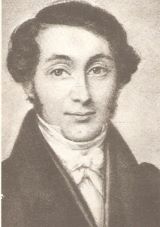Rolland, Samuel
 Samuel Rolland was a pioneer French Protestant missionary in South Africa. Rolland was trained at the Institut d’evangélistes of Glay, Doubs, France, in a Lutheran environment. Appointed by the Paris Evangelical Missionary Society (PEMS), in 1829 he sailed for southern Africa with Isaac Bisseux and Prosper Lemue. In 1835, on the right bank of the Caledon River, he established the multi-ethnic settlement, which was named Beerseba. This community acknowledged the suzerainty of Moshoeshoe of Lesotho, in whose country three other PEMS missionaries (Casalis, Arbousset, and Gosselin) were already working. Aided by his wife, Elizabeth (Lyndall), an LMS teacher, Rolland founded a model Christian village, where evangelization, education, agriculture, homecrafts, and language teaching were combined to “civilize” the population. He helped translate parts of the New Testament, which was printed at Beerseba beginning in 1845. The settlement was twice destroyed by Afrikaner Voortrekkers, who finally annexed the region into the Orange Free State. Rolland and several Sotho families then moved to Hermon, inside the Lesotho kingdom, where he lived until the end of his life.
Samuel Rolland was a pioneer French Protestant missionary in South Africa. Rolland was trained at the Institut d’evangélistes of Glay, Doubs, France, in a Lutheran environment. Appointed by the Paris Evangelical Missionary Society (PEMS), in 1829 he sailed for southern Africa with Isaac Bisseux and Prosper Lemue. In 1835, on the right bank of the Caledon River, he established the multi-ethnic settlement, which was named Beerseba. This community acknowledged the suzerainty of Moshoeshoe of Lesotho, in whose country three other PEMS missionaries (Casalis, Arbousset, and Gosselin) were already working. Aided by his wife, Elizabeth (Lyndall), an LMS teacher, Rolland founded a model Christian village, where evangelization, education, agriculture, homecrafts, and language teaching were combined to “civilize” the population. He helped translate parts of the New Testament, which was printed at Beerseba beginning in 1845. The settlement was twice destroyed by Afrikaner Voortrekkers, who finally annexed the region into the Orange Free State. Rolland and several Sotho families then moved to Hermon, inside the Lesotho kingdom, where he lived until the end of his life.
Jean-François Zorn
Bibliography
Frantz Balfet, Un pionnier de la Mission du Lessouto, Samuel Rolland, 1801-1873 (1914),
——-, Samuel Rolland (1801-1873): *Pionier van die sending in die Vrystaat (1984).
Jeanne-Marie Léonard, “Beerseba et Thaba-Bossiou, stations de la Société des Missions Evangéliques de Paris au Lesotho, 1833-1848,” Les réveils missionnaires en France du Moyen-Age à nos jours (XIIe-XXe siècles) (1984), pp. 311-320.
——, “Samuel Rolland (1801-1873).” Hommes et Destins, vol. 5 (1984), pp. 475-476.
This article is reproduced, with permission, from Biographical Dictionary of Christian Missions, copyright © 1998, by Gerald H. Anderson, W. B. Eerdmans Publishing Company, Grand Rapids, Michigan. All rights reserved.



